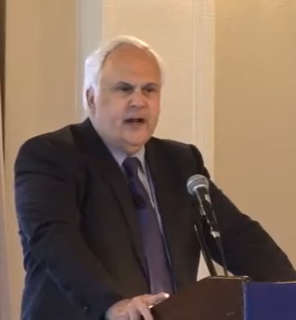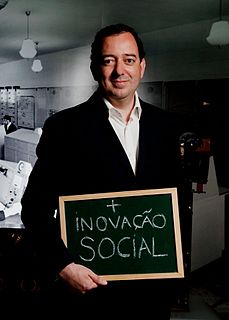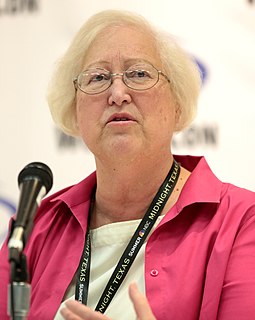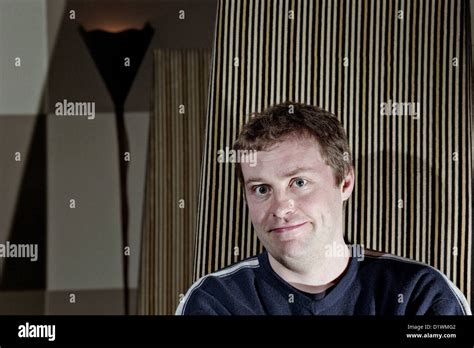A Quote by Jennifer Hyman
Industries that are chaotic are ripe for innovation. They are open to anyone who has an idea.
Quote Topics
Related Quotes
Both SOPA and PIPA are toxic. My view is that anyone who supports these bills either doesn't understand what they are supporting or is simply no friend of innovation. And, if you are no friend of innovation, I can't support you in any way, as innovation is the lifeblood of our economy, our country, and what I've dedicated my life to.
Tech companies like to set stretch goals, like we'll try to be the best company for women and minorities, and we have to ask, "What does that really mean?" By setting a goal like that, it makes all of us pay attention to that idea and try to innovate around it, to understand the underpinnings. One piece is being transparent, saying "Hey, we have an issue, we're open to innovation on it." It's important for innovation to prove that more diversity makes better products.
In the eighties and nineties, the innovation agenda was exclusively focused on enterprises. There was a time in which economic and social issues were seen as separate. Economy was producing wealth, society was spending. In the 21st century economy, this is not true anymore. Sectors like health, social services and education have a tendency to grow, in GDP percentage as well as in creating employment, whereas other industries are decreasing. In the long term, an innovation in social services or education will be as important as an innovation in the pharmaceutical or aerospatial industry.
The amazing thing is that chaotic systems don't always stay chaotic," Ben said, leaning on the gate. "Sometimes they spontaneously reorganize themselves into an orderly structure." "They suddenly become less chaotic?" I said, wishing that would happen at HiTek. "No, that's the thing. They become more and more chaotic until they reach some sort of chaotic critical mass. When that happens, they spontaneously reorganize themselves at a higher equilibrium level. It's called self-organized criticality.
Someone once said that innovation is a done idea. I agree. I believe that creativity is the individual development and conceptualization and that innovation in an organizational sense is implementing ideas and intentions that come from that creativity. So in a sense, creativity is more a leadership function and innovation is more a managerial function.


































